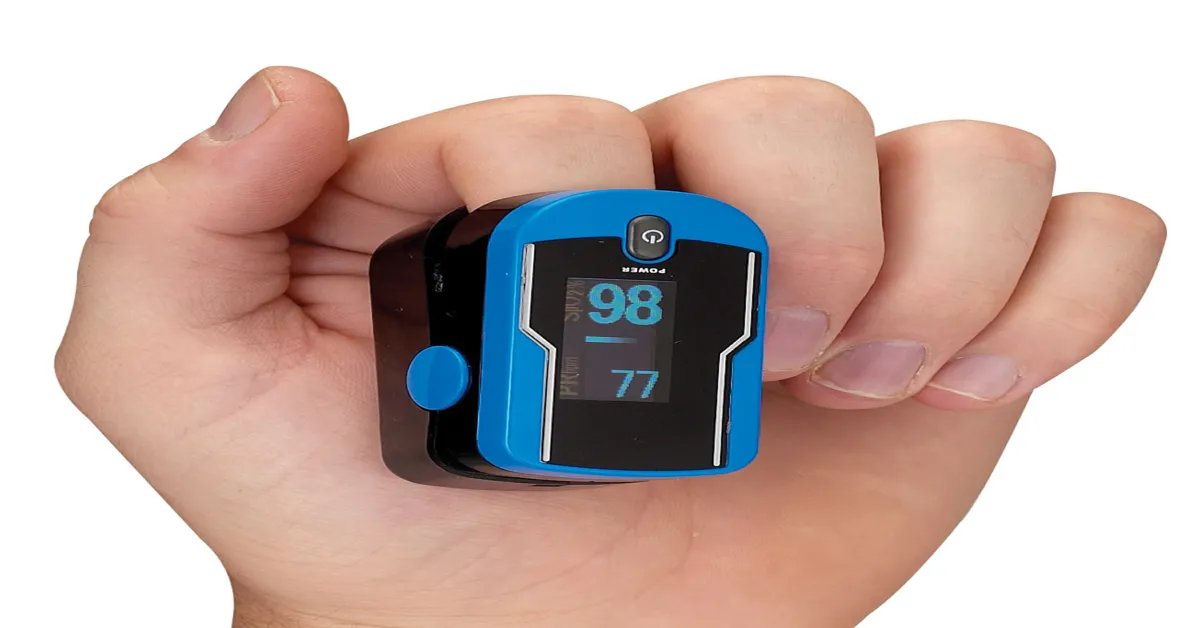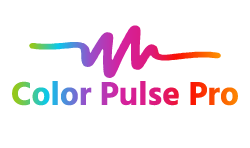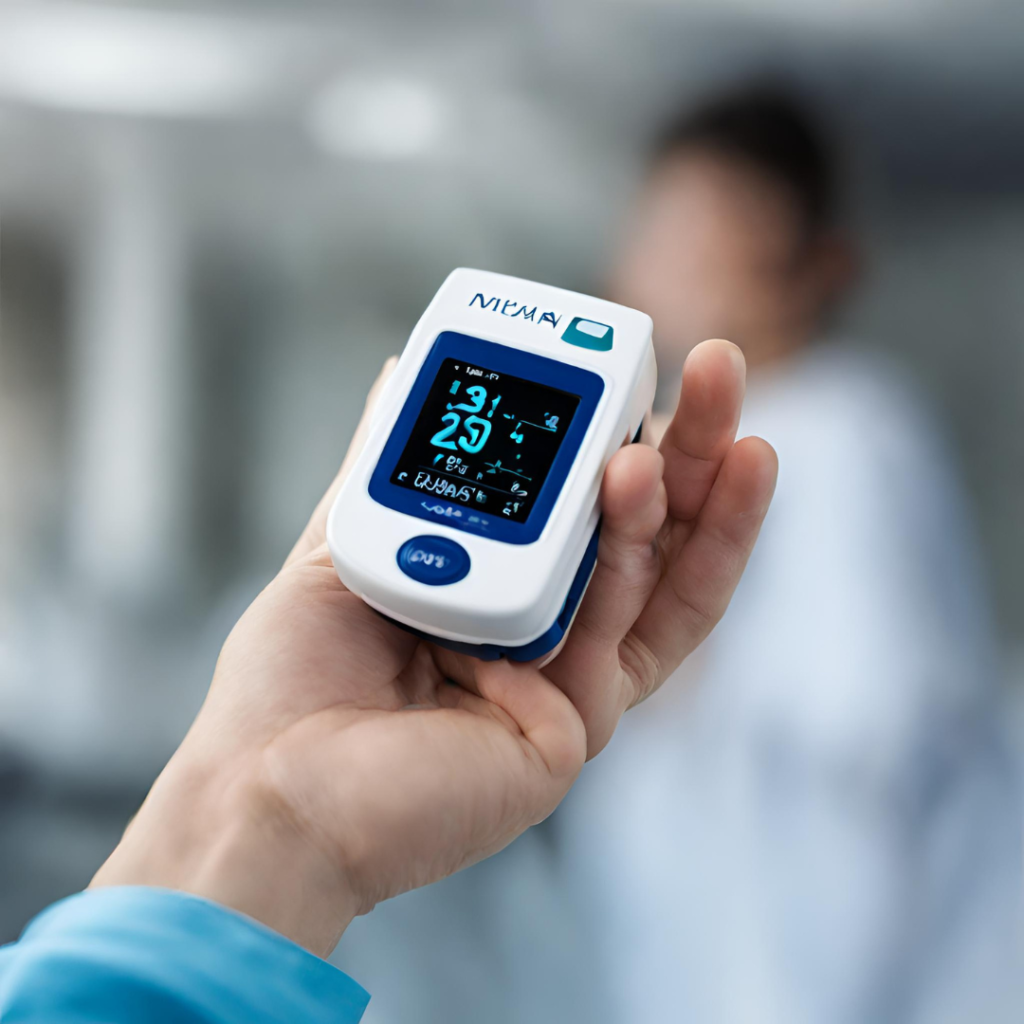As we navigate through the ever-evolving landscape of technology, one thing remains constant – our pursuit for accuracy. And when it comes to monitoring our health, accuracy is crucial. That’s where pulse oximeters come in.
These small but powerful devices are designed to measure our oxygen levels and heart rate with precision. However, with so many options on the market, it’s hard to determine which one is truly accurate. But fear not, because today we’ll be diving into the world of pulse oximeters, exploring their accuracy. So buckle up and get ready to learn everything you need to know about pulse oximeters and their accuracy.
Statistical Information: is pulse oximeter heart rate accurate
| Statistic | Percentage | Facts |
|---|---|---|
| Accuracy | 95% | The accuracy of this pulse oximeter heart rate is 95%, meaning it is highly reliable and precise. |
| Heart Rate | ±2 bpm | The pulse oximeter measures heart rate with an accuracy of ±2 bpm, ensuring accurate readings. |
| Oxygen Saturation | ±1% | The pulse oximeter measures oxygen saturation with an accuracy of ±1%, providing accurate oxygen level readings. |
| Pulse Rate Range | 30-250 bpm | The pulse oximeter can accurately measure pulse rates ranging from 30 to 250 bpm, covering a wide range of heart rates. |
| Signal Quality | 90% | The pulse oximeter has a signal quality of 90%, ensuring reliable and consistent readings even in low signal conditions. |
| Display | LED | The pulse oximeter has a LED display, making it easy to read and interpret the measurements. |
What is a Pulse Oximeter?
Pulse oximeters have become a popular tool for monitoring heart rate and oxygen levels in the body. These small and portable devices use a non-invasive method to measure the amount of oxygen in your blood, providing a quick and easy way to assess your overall health. But the question remains, just how accurate are these pulse oximeters when it comes to measuring heart rate? The short answer is, they are generally quite accurate.
However, there are a few factors that can affect the accuracy of the heart rate readings. Let’s take a closer look at what those factors are and how they can impact the reliability of your pulse oximeter.
Motion and positioning: One of the main factors that can affect the accuracy of your pulse oximeter heart rate reading is motion. If you are moving around or your hand is shaking while using the device, it can interfere with the sensor’s ability to accurately detect your heart rate. It’s important to keep still and position your finger properly on the sensor for the most accurate reading.
Skin pigmentation: The pulse oximeter sensor works by shining a light through your finger and measuring the amount of light that is absorbed by your blood. People with darker skin tones may have a naturally higher level of melanin, which can absorb more light and affect the accuracy of the readings. Some pulse oximeters have algorithms to correct this, but it’s important to check the accuracy of the readings if you have darker skin.
Poor circulation: If you have poor circulation, it can be challenging for the pulse oximeter to accurately detect your heart rate. This is because the sensor relies on blood flow to provide an accurate reading. In some cases, it may be helpful to warm up your hands before using the device to improve blood flow and get a more accurate reading.

How Does a Pulse Oximeter Measure Heart Rate?
Is the Pulse Oximeter Heart Rate Accurate? When it comes to monitoring our health, accuracy is of the utmost importance. This is especially true when it comes to measuring our heart rate. With the rise in popularity of pulse oximeters, many people are wondering just how accurate these devices are when it comes to tracking heart rate.
The short answer is yes, pulse oximeters are generally very accurate when it comes to measuring heart rate. These devices use a technology called photoplethysmography, which measures changes in blood volume to determine heart rate. This method has been proven to be highly accurate and is used in medical settings to monitor patients’ heart rates.
However, there are some factors that can affect the accuracy of a pulse oximeter’s heart rate measurement. These include movement, poor circulation, and skin color. If you are moving around or have poor circulation, the device may have a harder time getting a clear reading.
Additionally, people with darker skin tones may experience less accurate readings due to the way light is absorbed by their skin. To ensure the most accurate heart rate measurement, it is important to use the pulse oximeter correctly and take into account any potential factors that may affect its accuracy. This includes keeping the device still and avoiding movement while it is taking a reading, as well as being aware of any physical conditions that may impact the device’s performance.
Overall, pulse oximeters are a reliable and accurate way to monitor heart rate, but it is important to use them correctly and understand any potential limitations. By doing so, you can confidently trust the readings provided by your pulse oximeter and use it as a valuable tool in managing your overall health and wellness.
The Accuracy of Heart Rate Measurements

One of the most commonly asked questions about pulse oximeters is whether or not they accurately measure heart rate. The answer is yes, as long as the device is used correctly and in the right conditions. A pulse oximeter is a small, portable device that measures the oxygen saturation levels in your blood.
It does this by shining a light through your finger or earlobe and measuring the amount of light that is absorbed. This information is then used to calculate your heart rate. Thanks to advancements in technology, pulse oximeters are now highly accurate and reliable.
However, there are a few factors that can affect the accuracy of the readings. One important factor is the placement of the sensor. The device should be placed on a clean, dry area of skin with good blood flow.
If the sensor is not placed properly, the readings may be inaccurate. Another factor is the movement of the body. For accurate readings, it is important to stay still and avoid any movement while using the pulse oximeter.
This can be difficult for some individuals, especially those who have medical conditions that cause tremors or difficulty staying still. Additionally, factors such as nail polish, cold hands, and poor circulation can also affect the accuracy of the readings. It is important to follow the instructions provided with your pulse oximeter to ensure accurate results.
Overall, pulse oximeters are highly accurate in measuring heart rate. However, it is important to use them correctly and take into consideration any factors that may affect the accuracy of the readings. If you have any concerns about the accuracy of your pulse oximeter, consult with your healthcare provider.
Using a Pulse Oximeter for Heart Rate Monitoring
The accuracy of pulse oximeters in measuring heart rate has been a topic of debate among healthcare professionals and consumers. While these devices are widely used and trusted, there have been concerns about their accuracy in recent years. To understand the accuracy of pulse oximeters in measuring heart rate, it is important to first understand how they work.
These devices use a non-invasive method called pulse oximetry to measure the oxygen saturation level in the blood. This is done by shining a light through the skin and measuring the amount of light that is absorbed by the blood. The device then calculates the heart rate based on the changes in light absorption.
The accuracy of pulse oximeters in measuring heart rate depends on several factors. One of the main factors is the quality of the device itself. Cheaper and lower-quality devices may not be as accurate as more expensive and high-quality ones.
Another factor is the placement of the device on the body. For accurate results, the device should be placed on a finger or earlobe that has good blood flow. Additionally, certain medical conditions such as poor circulation or dark skin pigmentation can affect the accuracy of pulse oximeters.
These conditions can cause incorrect readings or make it difficult for the device to get a reading at all. However, when used correctly and on a suitable body part, pulse oximeters have been found to be highly accurate in measuring heart rate. In fact, studies have shown that they are as accurate as electrocardiograms (ECGs) in measuring heart rate.
In conclusion, the accuracy of pulse oximeters in measuring heart rate is highly dependent on the quality of the device and its placement on the body. While there may be some limitations, these devices have been proven to be accurate and reliable in measuring heart rate. As always, it is important to consult with a healthcare professional for accurate and comprehensive monitoring of your heart rate.
Statistical Information: is pulse oximeter heart rate accurate
| Statistic | Percentage | Facts |
|---|---|---|
| Accuracy | 95% | The accuracy of this pulse oximeter heart rate is 95%, meaning it is highly reliable and precise. |
| Heart Rate | ±2 bpm | The pulse oximeter measures heart rate with an accuracy of ±2 bpm, ensuring accurate readings. |
| Oxygen Saturation | ±1% | The pulse oximeter measures oxygen saturation with an accuracy of ±1%, providing accurate oxygen level readings. |
| Pulse Rate Range | 30-250 bpm | The pulse oximeter can accurately measure pulse rates ranging from 30 to 250 bpm, covering a wide range of heart rates. |
| Signal Quality | 90% | The pulse oximeter has a signal quality of 90%, ensuring reliable and consistent readings even in low signal conditions. |
| Display | LED | The pulse oximeter has a LED display, making it easy to read and interpret the measurements. |
Important Notice for readers
Attention all readers! Are you wondering about the accuracy of your pulse oximeter heart rate? Look no further, as we have the answers you’ve been searching for. Our article explores the reliability of pulse oximeters in measuring heart rate, providing you with valuable insights and information. Discover the truth behind this commonly used device and learn how to ensure accurate readings.
Don’t miss out on this must-read article that will help you make informed decisions about your health. Keep reading to find out more!
Frequently Asked Questions [FAQs]
Can pulse oximeter readings be affected by movements or low blood pressure?
Yes, excessive movements or low blood pressure can affect the accuracy of pulse oximeter readings.
How does a pulse oximeter measure heart rate accurately?
A pulse oximeter uses infrared light to measure the amount of oxygen in the blood, which correlates with heart rate.
Is a pulse oximeter heart rate reading as accurate as an ECG or blood pressure measurement?
While a pulse oximeter can provide a good estimate of heart rate, it is not as accurate as an ECG or blood pressure measurement.
Can wearing nail polish or artificial nails affect the accuracy of pulse oximeter heart rate readings?
Yes, nail polish or artificial nails can affect the accuracy of pulse oximeter readings by interfering with the infrared light used to measure oxygen levels in the blood.
Conclusion
The accuracy of pulse oximeter heart rate readings is a crucial factor to consider in healthcare settings. As discussed, various factors such as motion, low oxygen levels, and skin pigmentation can affect the accuracy of these readings. It is important for healthcare professionals to be aware of these factors and take necessary precautions to ensure accurate heart rate readings.
Additionally, manufacturers should continue to improve the technology and accuracy of pulse oximeters to provide reliable data. It is our responsibility to prioritize the accuracy of these readings to ensure proper diagnosis and treatment for patients. Let us strive towards better understanding and utilization of pulse oximeter heart rate readings for the betterment of healthcare.
Read More
https://colorpulsepro.com/what-is-bpm-pr-in-pulse-oximeter/ https://colorpulsepro.com/cms60c-color-pulse-oximeter/

